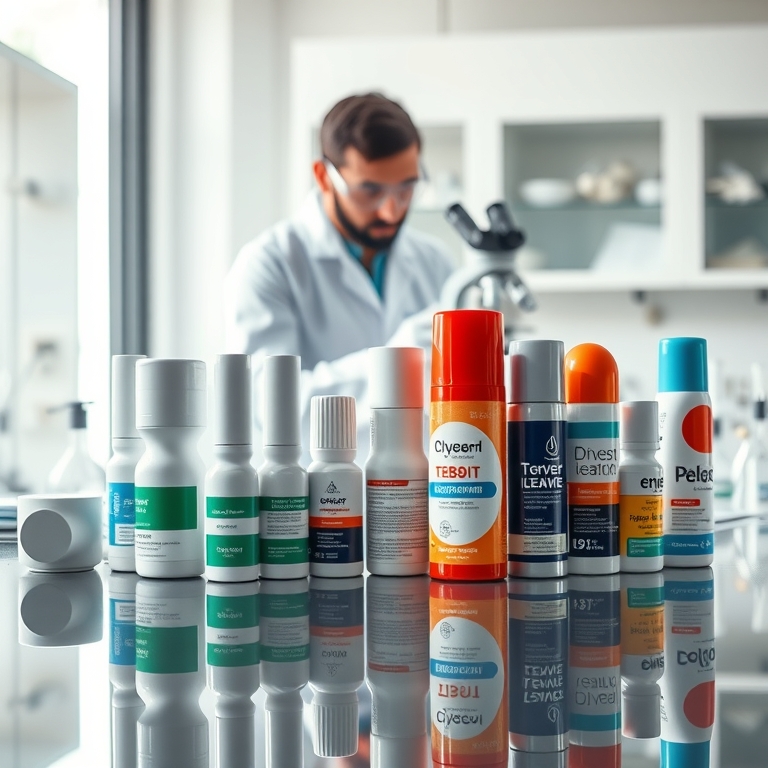In an unexpected turn of events that has sent ripples through the personal care industry, the United States Food and Drug Administration (FDA) has issued a recall on several popular deodorant brands due to concerns over chemical contamination. This decision has not only surprised consumers but also raised critical questions about the processes and safeguards in place to ensure the safety and integrity of personal care products. The ramifications of this recall are likely to extend beyond the immediate inconvenience for consumers, potentially impacting regulatory practices, brand reputations, and industry standards.
The recall follows a series of tests that identified the presence of benzene, a chemical compound that is classified as a human carcinogen by the World Health Organization and the International Agency for Research on Cancer. Benzene is known to pose significant health risks, including an increased risk of cancer as well as harmful effects on bone marrow, which can lead to blood disorders. While benzene is not an ingredient intentionally used in deodorant formulations, its presence as a contaminant has raised alarms about potential lapses in manufacturing processes and supply chain oversight.
The FDA’s move to recall the products was prompted by findings from independent laboratory testing, which revealed benzene contamination in several aerosol deodorant products. These findings have brought to light the challenges faced by regulatory bodies in monitoring and ensuring the safety of complex supply chains. In response to the recall, the FDA has reiterated its commitment to consumer safety, emphasizing its ongoing efforts to work with manufacturers to identify the source of the contamination and prevent future occurrences.
For the manufacturers affected by the recall, this development represents a significant blow. Not only do they face the immediate logistical and financial challenges associated with withdrawing products from the market, but they also must contend with potential damage to their brand reputation and consumer trust. The recall has prompted a flurry of activity among these companies, as they scramble to communicate with consumers, address safety concerns, and conduct their own investigations into the contamination issue.
At the same time, this incident has reignited discussions about the adequacy of current regulatory frameworks governing personal care products. Unlike pharmaceuticals, which undergo rigorous testing and approval processes before reaching the market, personal care products, including deodorants, are subject to less stringent oversight. This regulatory gap has long been a point of contention among consumer advocacy groups, who argue that stronger regulations and more comprehensive testing are necessary to protect public health.
The recall also highlights the critical role of transparency and accountability in maintaining consumer trust. In today’s information-driven world, consumers are increasingly vigilant and informed about the products they use. They demand transparency from companies and expect swift and responsible action when issues arise. In this context, the manner in which companies and regulators respond to the recall will be closely scrutinized. It presents an opportunity for the industry to demonstrate its commitment to consumer safety and to strengthen the systems in place to prevent similar incidents in the future.
Beyond the immediate impact on consumers and manufacturers, the recall has broader implications for the personal care industry as a whole. It serves as a stark reminder of the importance of robust quality control measures and the need for continual vigilance in sourcing and production processes. The incident may well prompt other companies to review their own supply chains and testing protocols, spurring a wave of introspection and reform aimed at bolstering product safety.
Moreover, the situation underscores the growing importance of third-party testing and verification in maintaining product integrity. Independent testing laboratories play a crucial role in identifying potential safety issues that may not be caught during routine internal testing. As such, partnerships between manufacturers and independent laboratories are likely to become increasingly important in ensuring the safety and quality of personal care products.
Consumers, on the other hand, are left to navigate the uncertainty brought about by the recall. The disruption caused by the withdrawal of popular deodorant brands from the market may lead some to explore alternative products or turn to natural or organic options perceived as safer. This shift in consumer behavior could have lasting effects on market dynamics, potentially influencing product innovation and development in the industry.
In conclusion, the FDA’s recall of deodorants due to chemical contamination concerns serves as a wake-up call for the personal care industry and regulators alike. It underscores the critical importance of stringent safety standards, effective oversight, and transparent communication in maintaining consumer trust and safeguarding public health. As the industry grapples with the fallout from this incident, it is clear that a concerted effort will be required to address the underlying issues and ensure that such lapses do not occur in the future. The path forward will undoubtedly involve a careful balance of regulation, innovation, and collaboration among stakeholders, as the industry works to restore consumer confidence and uphold the highest standards of product safety.

Leave a Reply